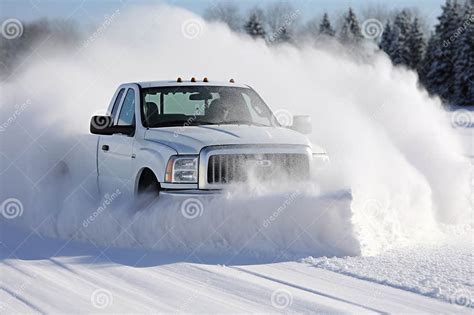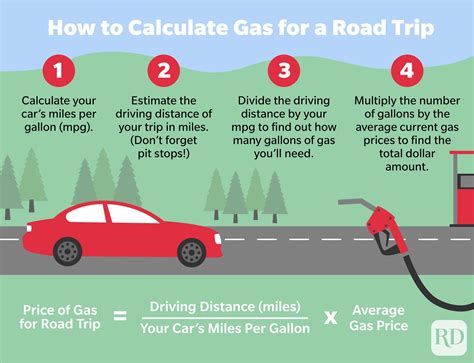When temperatures drop, diesel engine owners face a common and frustrating problem: diesel fuel gelling. This phenomenon occurs when the paraffin wax components in diesel crystallize and solidify, turning the fuel into a thick, cloudy gel that can clog fuel filters and lines, ultimately starving the engine of fuel and preventing it from starting or running properly. Understanding the causes and implementing preventative measures is crucial for reliable operation in cold climates.
Understanding Diesel Gelling and Its Impact
Diesel fuel contains various hydrocarbons, including paraffin wax. As the temperature falls, these waxes begin to solidify. The ‘cloud point’ is the temperature at which wax crystals first become visible, making the fuel appear cloudy. If the temperature drops further to the ‘pour point,’ the fuel becomes so thick it resists flowing. When this happens, the wax crystals accumulate in the fuel filter, restricting fuel flow and potentially shutting down the engine. This issue is particularly prevalent in colder regions and during unexpected cold snaps.
The Right Fuel: Winterized Diesel
One of the most straightforward ways to prevent gelling is to use appropriate fuel for the season. Fuel distributors in cold regions typically offer ‘winterized diesel’ or ‘winter-blend diesel.’ This fuel has a lower cloud point and pour point than standard #2 diesel (summer diesel), often achieved by blending #1 diesel (kerosene) or using special additives at the refinery. It’s crucial to purchase fuel from reputable sources that understand local weather conditions.
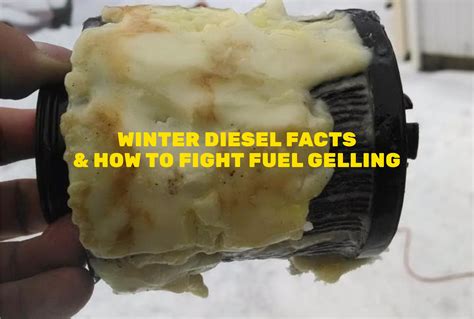
Essential Additives: Anti-Gel Treatments
Even with winterized diesel, extreme cold can still pose a risk. Anti-gel additives are chemical treatments designed to modify the size and shape of the wax crystals, preventing them from growing large enough to clog filters. It’s vital to add these additives *before* the temperature drops and the fuel begins to gel, as they are largely ineffective once gelling has already started. Always follow the manufacturer’s instructions for mixing ratios and application.
Maintaining Your Fuel System
Regular Fuel Filter Changes
The fuel filter is the first line of defense against contaminants and is also the first component to clog when diesel gels. Ensuring your fuel filter is clean and replaced regularly, especially before the onset of cold weather, can significantly reduce the risk of gelling-related issues. Some operators even keep a spare filter on hand.
Keep Your Fuel Tank Full
A full fuel tank leaves less space for air, which reduces condensation. Water accumulation in the fuel tank can freeze and form ice crystals that also clog fuel filters and lines, compounding the problem of gelling. Keeping your tank topped off, especially overnight, helps minimize this risk.
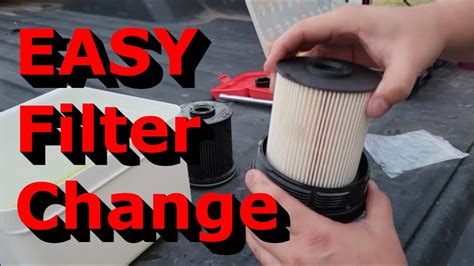
Heating Solutions for Extreme Cold
For vehicles operating in consistently frigid environments, active heating solutions can be indispensable.
Engine Block Heaters
An engine block heater warms the engine block, making it easier for the engine to start in cold weather and indirectly helping to prevent fuel gelling by keeping the surrounding components warmer. Plug it in several hours before you plan to start the vehicle.
Fuel Line and Filter Heaters
These devices are designed to directly warm the fuel as it travels through the lines and filter. Electric fuel line and filter heaters prevent wax crystallization at critical points in the fuel system, ensuring a continuous flow of fuel to the engine.
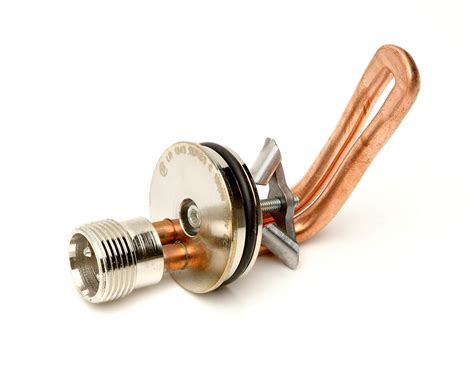
Emergency Measures and Best Practices
If your diesel has already gelled, do not attempt to start the engine, as this can damage the fuel pump. The best solution is to warm the fuel. This can be done by moving the vehicle into a heated garage, using a portable heater directed at the fuel tank and lines (with extreme caution to avoid fire), or waiting for temperatures to rise. Never add gasoline or other incompatible fluids to diesel fuel as a de-gelling agent, as this can severely damage your engine and fuel system.
Other best practices include parking vehicles in sheltered areas, out of direct wind, and covering fuel tanks if possible. Always ensure your vehicle’s battery is in good condition, as cold weather can significantly reduce battery performance, further complicating cold starts.
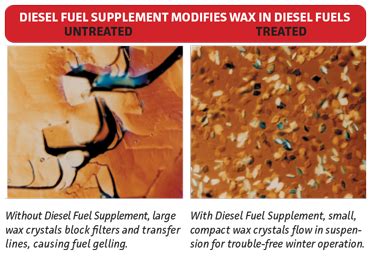
Conclusion
Preventing diesel gelling in cold weather is a multi-faceted approach that combines using the correct fuel, employing effective additives, maintaining your fuel system, and utilizing heating solutions. By taking proactive steps, diesel engine owners can avoid costly breakdowns, maintain operational efficiency, and ensure their vehicles are ready to perform, no matter how low the mercury drops. Staying prepared means staying on the road.
